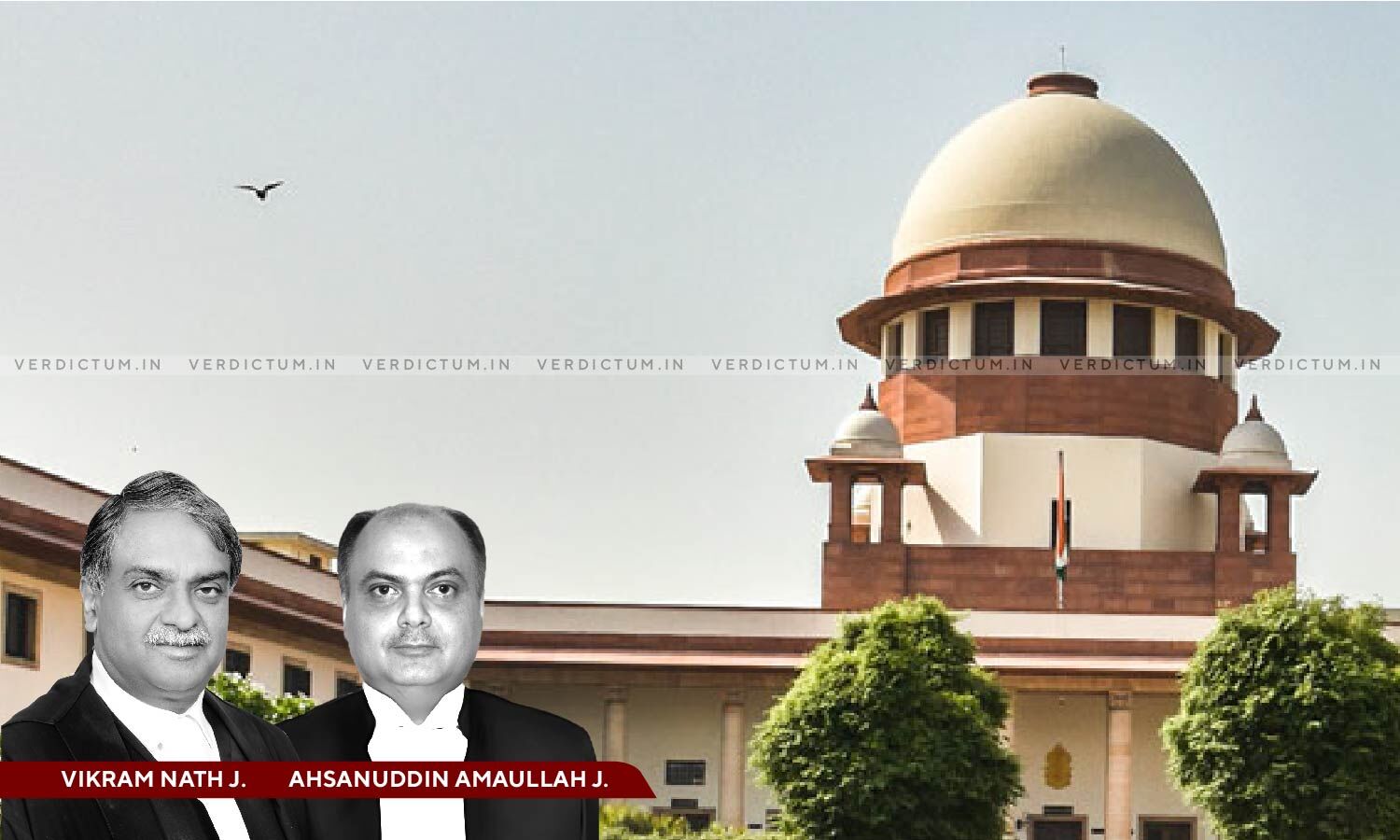IBC| OTS Proposals By Corporate Debtor Not Questioned By Suspended Directors- SC Dismisses Appeal Of Axis Bank, Upholds Condonation Of Delay By SBI In CIRP
The Supreme Court has dismissed the appeal filed by Axis Bank Limited in an IBC (Insolvency and Bankruptcy Code) related case and has upheld the condonation of delay by SBI (State Bank of India) against the Corporate Debtor in CIRP (Corporate Insolvency Resolution Process) saying that OTS (One-Time Settlement) proposals by the Corporate Debtor were not questioned by the suspended Directors.
The Court was deciding an appeal under Section 62 of the IBC, 2016 against the judgment of the NCLAT (National Company Law Appellate Tribunal) whereby the Company Appeal filed by the appellant was dismissed upholding the judgment passed by the Adjudicating Authority admitting the application under Section 7 of the IBC after condoning the delay.
The two-Judge Bench comprising Justice Vikram Nath and Justice Ahsanuddin Amanullah held, “Presently in this appeal the said issue cannot be taken up for two reasons: firstly, the Adjudicating Authority as well as NCLAT have accepted the explanation of Respondent No.2 for the delay caused in filing the Section 7 IBC petition to be satisfactory and have condoned the same. Secondly, in view of the first and second OTS proposals by the Corporate Debtor being not questioned by the suspended Directors, there is no reason to disbelieve or to cast any doubt on the said documents at the instance of the appellant.”
Senior Advocate Sanjiv Sen appeared for the appellant while Additional Solicitor General N. Venkataraman appeared for the respondents.
Facts of the Case -
The appellant entered into a leave and license agreement with a company for the premises and a security deposit was furnished by it. The said company executed a simple mortgage without possession in favour of the appellant for seven floors. The company was merged with another company under the orders of the Bombay High Court and was renamed. The appellant issued notices for the refund of security deposit under the agreement but the said amount was never paid as a result of which the appellant filed eight summary suits before the High Court for refund.
In the meantime, the respondent (SBI) declared the Corporate Debtor as Non-Performing Asset (NPA) in view of default. The High Court granted leave to defend to the corporate debtor subject to deposit of security deposit and later the suits were decreed. The appellant had applied before the High Court for recovery of dues and a proclamation of sale was ordered in its favour. In the meantime, the respondent moved separate applications at different times and the adjudicating authority condoned the delay passing an order of admission and appointment of Interim Resolution Professional (IRP). Aggrieved by this, the appellant preferred an appeal before the NCLAT but the same was dismissed, hence, the matter was before the Apex Court.
The Supreme Court after hearing the contentions of the counsel noted, “First point on which case laws have been referred to is that a time barred application cannot be entertained under Section 7 IBC. The same would not be relevant or of any help to the appellant as it has already been held that the application of Respondent No.2 would be entitled to benefit of Sections 5 and 18 of the Limitation Act and, therefore, was within time.”
The second point on which the case laws were referred to was that no benefit could be claimed under Section 14 of the Limitation Act. The Court in this regard observed that such case laws are not of any relevance as it has been held that no benefit could be claimed by the respondent under the said provision.
“The third point on which case law is relied upon is that for benefit under Section 18 of the Limitation Act, the acknowledgment should be made within expiry of the limitation provided under law. On this point it has been factually found that taking the date of acknowledgment of debt in Balance Sheet and the three OTS proposals the same were within the limitation under law or the extended limitation due to acknowledgments. Thus the case laws relied upon would have no relevance in the facts of the present case”, observed the Court.
Accordingly, the Apex Court dismissed the appeal.
Cause Title- Axis Bank Limited v. Naren Sheth & Anr. (Neutral Citation: 2023INSC820)



